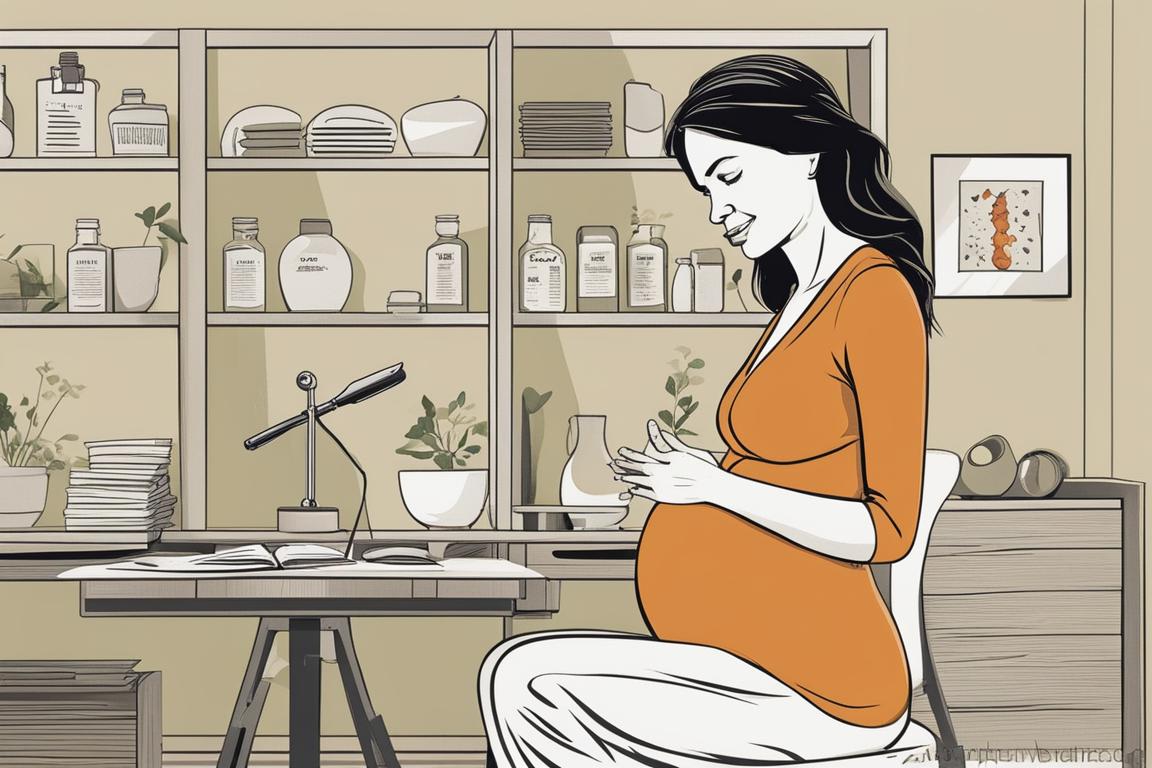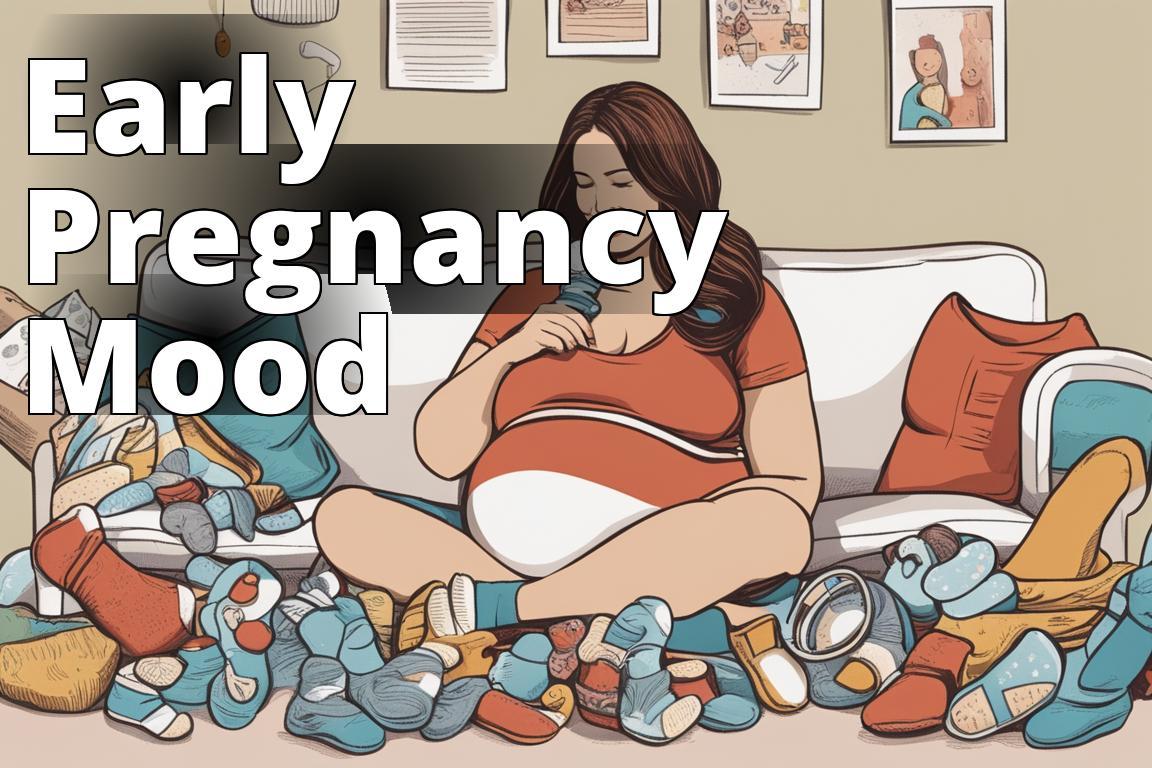Mood swings during pregnancy are as common as morning sickness and food cravings. They’re the unwritten chapters of pregnancy, the emotional rollercoaster that takes you from elation to frustration in the blink of an eye. But when do these mood fluctuations begin? The answer isn’t as straightforward as one might hope, but understanding the timeline can help expectant mothers navigate these turbulent waters with a bit more grace.
Learn About Mood Swings During Pregnancy
- Start: Usually start in the first trimester.
- Duration: Can last until delivery.
- Management: Through self-care and support.
Mood Swings During Pregnancy

Pregnancy is a time of profound change, both physically and emotionally. Its akin to being on a boat in the middle of the ocean; some days are serene and peaceful, while others are stormy and unpredictable. This analogy perfectly captures the essence of mood swings during pregnancy. They’re not just fleeting emotions but powerful waves that can sometimes overwhelm even the strongest of swimmers.
Insider Tip: Think of mood swings during pregnancy as your bodys way of preparing you for the unpredictability of parenting, says Dr. Elise Turner, a renowned psychologist specializing in maternal mental health.
What Causes Mood Swings During Pregnancy?
Hormones are the usual suspects when it comes to mood swings during pregnancy. The surge of estrogen and progesterone can turn the emotional landscape of a pregnant woman into a topsy-turvy world where tears and laughter coexist in a delicate balance. But it’s not just hormones. There’s a myriad of factors, including stress, fatigue, and the psychological adjustment to the idea of becoming a parent, that contribute to this emotional instability.
For more information on the hormonal changes during pregnancy, visit What Are the Symptoms of Depression and Anxiety.
When Do Mood Swings Start During Pregnancy?
Now, to address the million-dollar question: When do these mood swings start? Typically, mood swings begin in the first trimester, around the 6th to 10th week of pregnancy. This period coincides with the most significant hormonal changes as the body adjusts to its new role. However, it’s crucial to remember that every woman’s experience is unique. Some may find themselves on this emotional rollercoaster right from the get-go, while others may not notice significant mood fluctuations until later in the pregnancy.
During my first pregnancy, I vividly remember breaking into tears over a commercial about puppies something that would have barely registered on my emotional radar pre-pregnancy. It was around the 8th week, marking my personal initiation into the realm of pregnancy-induced mood swings.
How Long Do Mood Swings Last During Pregnancy?
Mood swings are most common during the first and third trimesters. The middle trimester often offers a brief respite as the body adapts to its pregnant state. However, as the due date approaches and the physical discomforts increase, the emotional seesaw may start up again. Generally speaking, these mood fluctuations tend to subside post-delivery, though it’s not unheard of for new mothers to experience them as part of the postpartum adjustment period.
How Can I Manage Mood Swings During Pregnancy?
Managing mood swings during pregnancy is all about self-care and support. Here are a few strategies that worked wonders for me:
- Regular Exercise: Even a short walk can uplift your mood.
- Healthy Diet: A balanced diet can stabilize your emotions.
- Adequate Sleep: Never underestimate the power of a good night’s sleep.
- Support Network: Lean on your partner, friends, and family.
- Mindfulness and Relaxation: Techniques like yoga and meditation can be incredibly soothing.
For those looking for natural ways to stabilize mood, considering How to Lower Your Cortisol Levels Naturally might offer some valuable insights.
Real-Life Experience: Managing Mood Swings During Pregnancy
Sarah’s Story
During my second pregnancy, I experienced intense mood swings that sometimes left me feeling overwhelmed and anxious. One day, I found myself crying uncontrollably over a minor inconvenience, and I knew I needed to find ways to manage my emotions better.
Strategies that Helped Sarah:
1. Mindfulness Techniques: Sarah practiced deep breathing and meditation to help calm her mind during moments of heightened emotions.
2. Regular Exercise: Engaging in light exercises like prenatal yoga or going for walks helped Sarah release tension and improve her mood.
3. Open Communication: Sarah spoke to her partner and close friends about how she was feeling, which provided her with emotional support and understanding.
By incorporating these strategies into her daily routine, Sarah was able to navigate her mood swings more effectively and enjoy a more balanced emotional state throughout her pregnancy.
When Should I Seek Help for Mood Swings During Pregnancy?
While mood swings are a normal part of pregnancy, they shouldn’t cripple your daily life. If you find yourself struggling to cope, it may be time to seek professional help. Signs that your mood swings may be more serious include feelings of hopelessness, disinterest in activities you once enjoyed, or thoughts of self-harm. In such cases, talking to a healthcare provider is crucial.
Whats the Difference Between Mood Swings and Depression During Pregnancy?
Its essential to distinguish between normal mood fluctuations and depression. Pregnancy-related depression is characterized by persistent sadness, anxiety, and fatigue that interfere with daily life. Unlike the ebb and flow of mood swings, depression doesn’t lift, casting a shadow over what should be a joyful time. If you suspect you’re experiencing depression, immediate intervention is necessary.
Exploring the symptoms of depression further can provide more clarity, so consider reading about it here.
Whats the Difference Between Mood Swings and Bipolar Disorder During Pregnancy?
Bipolar disorder during pregnancy presents a unique set of challenges. Unlike typical mood swings, bipolar disorder involves extreme mood episodes that can last for days or weeks. These are not just your garden-variety mood fluctuations but intense periods of mania and depression. Managing bipolar disorder during pregnancy requires a specialized treatment plan to ensure the health and safety of both mother and child.
For those navigating the complexities of bipolar disorder during pregnancy, it’s crucial to work closely with a healthcare provider to tailor a treatment plan that addresses both maternal and fetal health.
In conclusion, mood swings during pregnancy are a rite of passage for many women, marking the beginning of a profound journey into motherhood. While they can be bewildering and, at times, downright challenging, understanding their origins and knowing when to expect them can demystify the experience. By embracing self-care, seeking support, and recognizing when professional help is needed, expectant mothers can navigate these emotional waters with resilience and grace. Remember, it’s not just about weathering the storm but learning to dance in the rain.
Common Questions
When do mood swings typically start during pregnancy?
Mood swings usually begin in the first trimester due to hormonal changes.
How can pregnant women manage mood swings effectively?
Maintaining a healthy lifestyle, seeking support, and practicing relaxation techniques can help manage mood swings.
Who is most likely to experience mood swings during pregnancy?
Pregnant women are more susceptible to mood swings due to hormonal fluctuations.
What can trigger mood swings in pregnant women?
Hormonal changes, stress, fatigue, and physical discomfort can all trigger mood swings during pregnancy.
How long do mood swings typically last during pregnancy?
Mood swings can vary in duration but often improve by the end of the first trimester as hormone levels stabilize.
Isn’t it normal to experience mood swings during pregnancy?
Yes, mood swings are a common symptom of pregnancy and are usually temporary and manageable with self-care strategies.


